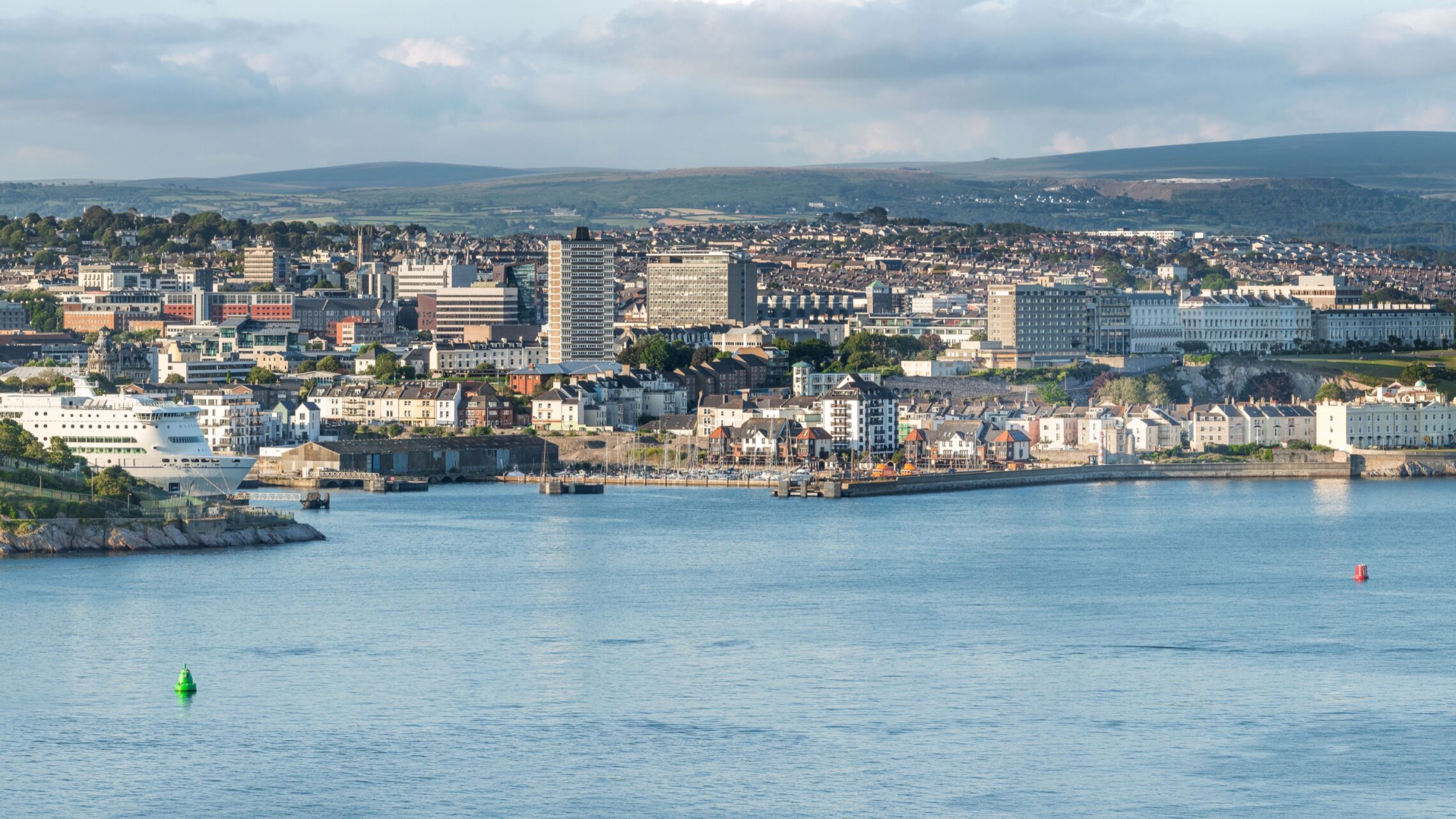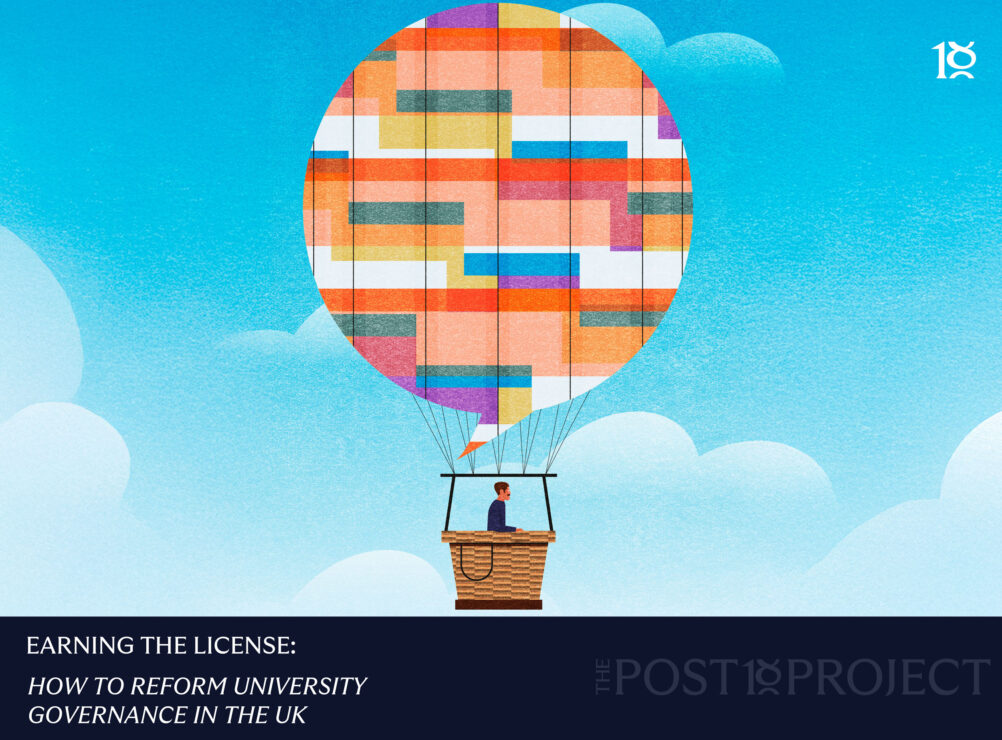Every Monday at 11.30am, a siren echoes across Plymouth.
It’s the routine test signal to take cover in the event of a nuclear incident and a haunting sound that reminds us that Devonport dockyard – western Europe’s largest naval base, and the area’s biggest employer – dominates the edge of our city.
It’s also a timely signal that Plymouth is entering a new era of defence-driven growth – and the University of Plymouth is right in the middle of it.
Being special
The words specialism and specialist appear frequently in the Government’s recent Post-16 Education and Skills White Paper. So, what moves do we make, here in Plymouth, and what does our approach suggest for the higher education sector more broadly?
As I begin my second year as vice chancellor, I’ve seen Plymouth shift from a city with potential to one with purpose – shaped by maritime defence, marine autonomy, and national security. The city is one of five places allocated a Defence Growth Deal, alongside Scotland, Wales, Northern Ireland and South Yorkshire. The newly formed “Team Plymouth” is bidding for a share of the £250 million in funding announced alongside that, and has been also designated as the UK’s National Centre for Marine Autonomy. And all of this is within a context where £4.4 billion is being invested into Devonport over the next ten years in support of our national deterrence and assurance of our maritime infrastructure upon which our freedoms depend, with the promises of further billions in the decades to come.
But this isn’t just about submarines. It’s about how the city’s largest university steps up – not only because investment in defence research and development is good news for us (see the politics of universities, defence, and R&D spending), but because there is a national and international imperative to protect our seas. We have a role to play – and, I would suggest, a duty – in delivering the skills, innovation, and dual-use technologies needed to do this better and faster than others.
Our university is globally recognised for its work in all things marine and maritime – notably in sciences and engineering – but our offer also spans subject areas from the arts, humanities and a business school, through to providing national resilience of a different kind via our faculty of health (including both medicine and dentistry) which holds more than 40 per cent of our students. Civic specialisation doesn’t mean that only part of the university needs to step up. This opportunity is not just about engineers; every discipline has its role to play in ensuring we support and deliver a rich array of graduates and researchers.
The future of defence
Defence has changed significantly since the Russian invasion into Ukraine back in February 2022, and international conflict is the current mother of invention. The need for autonomous devices on and under the sea, and the pace of innovation, demands diverse skill sets: creatives, technologists, business leaders, psychologists, project managers and more. And, as our city grows through the “defence dividend”, there will be new jobs, higher aspirations, reduced inequality, improved health, better housing, a more vibrant culture, and stronger communities. Along with this will be a demand for artists, historians, lawyers, doctors, nurses, dentists and more.
But there is some jeopardy, and colleagues are asking reasonable questions. Is this a distraction, just when we need to continue to be extra-focused and vigilant about being a well-run, efficient university offering students the best possible experience?
Compared with strategic shifts universities have made in the past, this one feels like a well-founded decision. Devonport isn’t going anywhere. CASD runs until at least 2070. Defence funding is long-term and strategic – unlike some other sources we’ve all banked on that have since disappeared (remember the Global Challenges Research Fund?). Furthermore, we’re not abandoning our legacy of innovation in areas like microplastic pollution, trans-cranial ultrasound, and sustainability. If defence is the bow wave, then behind it can be a flotilla of other opportunities.
The White Paper asks us to specialise; we’ve done it before (for example marine sciences, offshore renewable energy) and will do it again. But we also serve the South West of England. We have won three Queen’s Anniversary Prizes, and colleagues often proudly cite the 1994 award for partnering with further education providers and widening access to education in a scattered rural community. To stop doing that kind of work because we disinvested from some disciplines where there is demand would be a mistake. Specialism must be balanced with serving our communities in Devon, Cornwall and the wider region.
Right place right time
We’re the right university in the right city at the right time. Plymouth has been leading the way in tackling maritime cybersecurity for years. But now we’re at the centre of the UK’s marine autonomy agenda, we need to grow. And there are big questions to answer: how many graduates will be needed, in what disciplines, taught in what mode, and at what level? How do we work across HE and FE to build clearer, more exciting pathways for 16 and 17-year-olds into jobs in defence and other sectors, or retraining and upskilling adults who want to progress or change their careers? Getting the views of businesses, the Ministry of Defence and others, then sharing intelligence across the education sector will be vital to helping us make the best decisions.
Some vice chancellors have had to navigate sensitive situations around the defence industry on campus, with links to defence businesses being scrutinised. I am sure that will happen here, and we will have the discussion – we are a university and welcome debate. But maritime defence has been in Plymouth’s DNA for generations, as a naval port of vital strategic importance. Also, the technologies we develop have more than one application – one person’s defence alert system is another’s environmental monitoring equipment.
We need to move fast, because others outside the UK will. And we are up for it. If Cranfield is our nation’s defence aerospace university, Plymouth is poised to become its marine autonomy counterpart.
The stakes are high – not just because of financial pressures on universities, but because this challenge is about the UK’s security, on and under the sea. And it’s about how universities like Plymouth adapt to a new kind of industrial strategy.













